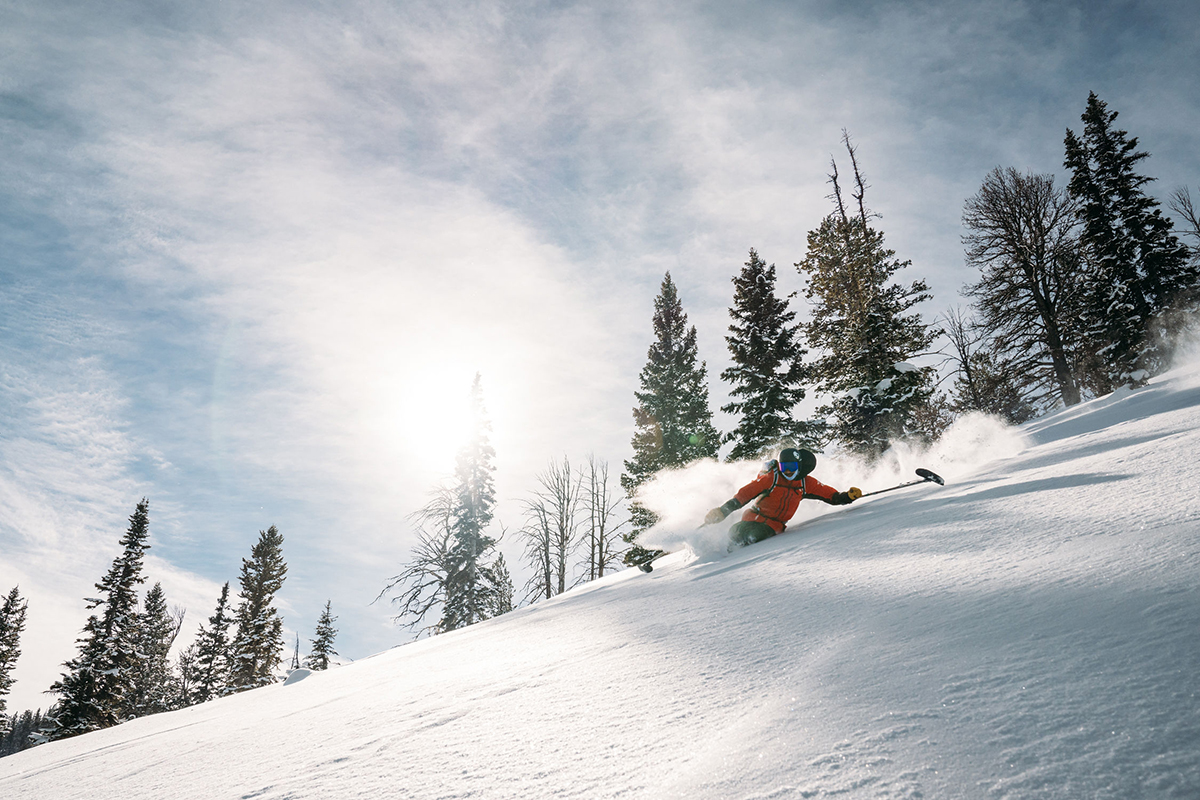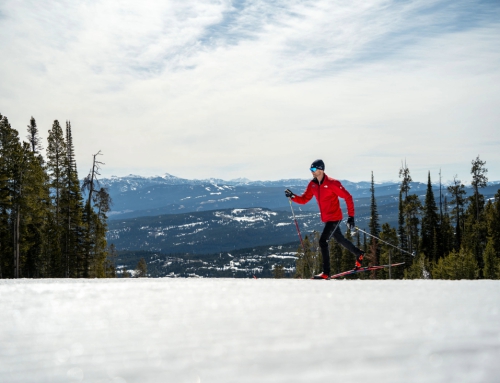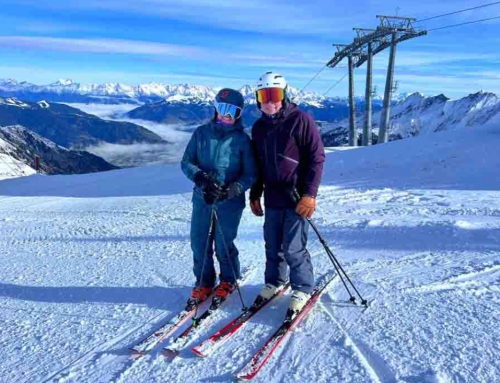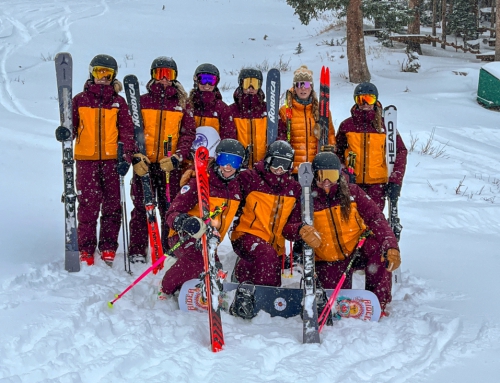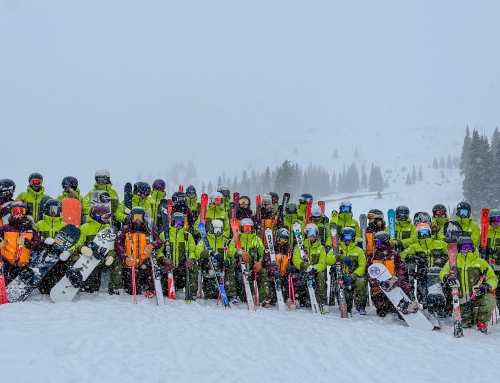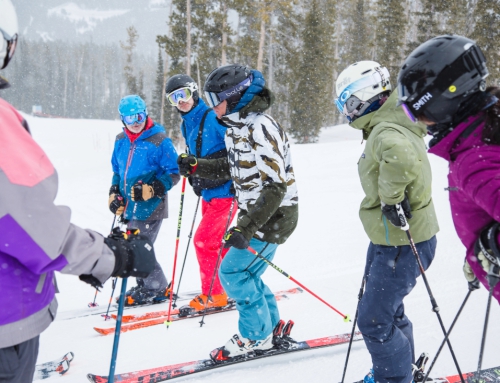32 Degrees: Meet Vasu Sojitra
Here, PSIA Alpine Team Member Robin Barnes interview The North Face athlete Vasu Sojitra for the Winter 2023 issue 32 Degrees Magazine. You can read the entire magazine right here.
Vasu Sojitra is a Disability access strategist and professional athlete focused on establishing intersections of human experience in the outdoors. When Sojitra was nine months old, he was diagnosed with septicemia, a blood infection that resulted in the amputation of his right leg. With the tough love and encouragement of his parents and older brother, Vasu developed a strong desire to move freely and spend time in outdoor spaces. By age 10, he ditched his often limiting prosthetics for forearm crutches and never looked back. Today, the Bozeman, Montana-based adventurer strives to challenge the biases that go with being a Disabled person of color – life’s work he refers to as “ninjasticking.”
Robin: Please share a bit about yourself.
Vasu: Much of who I am is rooted in my values: Community, Land, and Joy. Never one without the other. Everything I do in my personal and professional life is intentional – from the language I use, to how I structure my time, to the people I’m around, and the companies I work with. Focusing on my core values has helped me create an ethos I share with the world.
I try to get outside as much as possible. Humans did not evolve in boxes, but it’s how many people spend most of their time. Boxes with lights, boxes with wheels, boxes with bright screens. We evolved with nature and when we deprive ourselves of any connection to outdoor spaces, our body keeps score. That’s why I truly believe outdoor access is a human right.
As an athlete, in addition to thinking about the next thing I want to achieve, I also consider how I can use the knowledge and opportunities I have to uplift everyone around me. I transitioned from a “me” to a “we” model. Much of this knowledge has evolved from deeply developed relationships with the Women of Color in my life. My continual connection with the feminine energy within me helps me build a life around care and support.
I’m a work in progress, but love every minute of life. Through the ups and downs; I coexist between grief and gratitude.
R: Why does representation matter?
V: When I was 11, I went skiing with my family at a local hill in Connecticut. I was with my older brother, Amir, when a one-legged skier appeared out of the blue and skied up to me. He told me, “Hey, good job; keep it up!” And then he was gone. It was a lucky and auspicious sign. His encouragement, and seeing someone who looked like me at the ski area, was significant, and I kept with the sport.
Representation helps me break down the preconceived notions society has put on me and my abilities. It gives me hope that I don’t have to exist in the boxes society has created for me, including, “Disabled people can’t do this,” or “Brown folks don’t ski.” Representation helps me build the life I want.
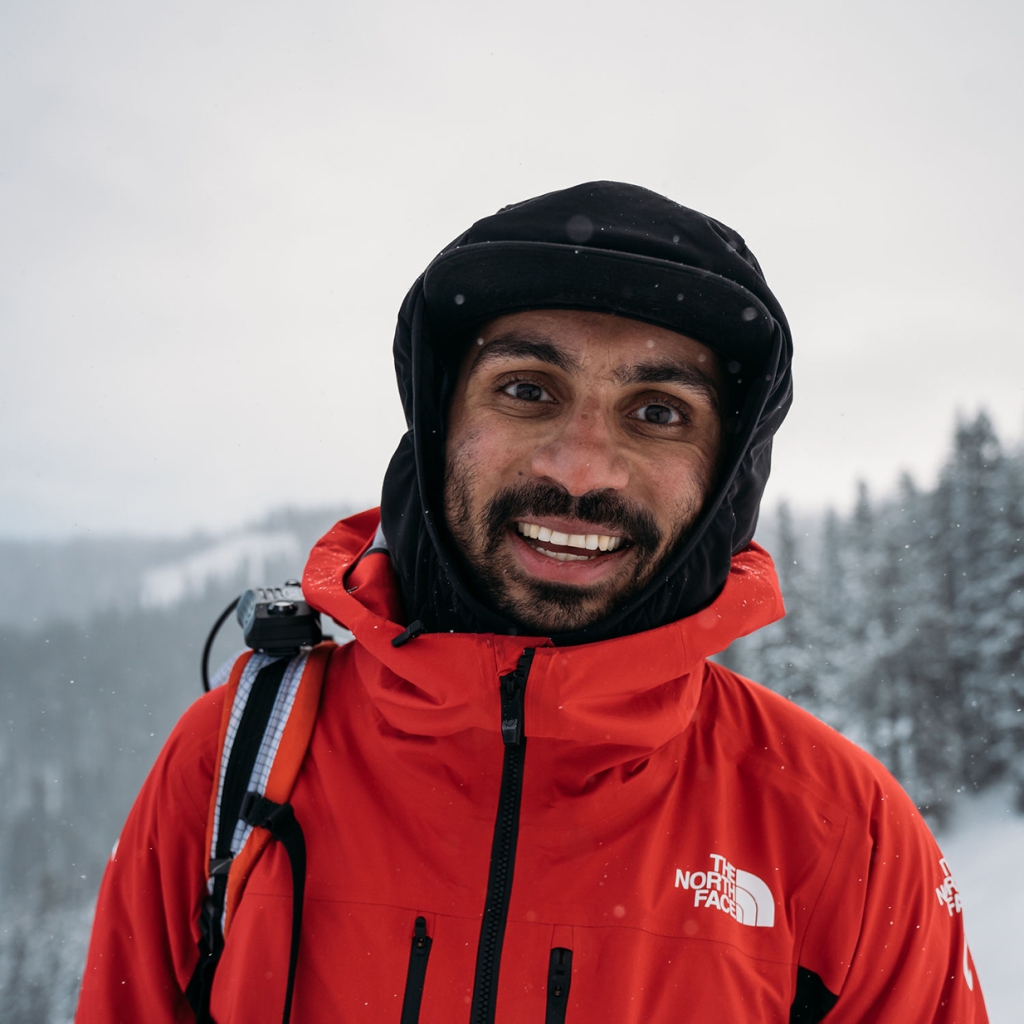
R: When and how were you introduced to backcountry skiing?
V: While attending college at the University of Vermont, a friend and I took part in a Backcountry Skiing and Avalanche Safety course. It was super fun, a MASSIVE learning experience, and it’s where we learned the ins and outs of safe and efficient backcountry ski travel. It’s also where a few of us put our heads together to develop what are now my snowshoe baskets for my outriggers – it’s the equipment I use to ski tour with one leg.
R: What’s your approach to adapting gear to perform in different environments?
V: My mind is always considering solutions to problems, whether they are physical – like ski touring with one leg – or systemic issues that affect the Disabled community. I have degrees in Mechanical Engineering and Math from the University of Vermont, and my mind is a problem-solving forest. I loved Legos as a little chunk of a human, and I haven’t lost my curiosity. Now I’m looking at the bigger picture and finding solutions to societal issues. I believe that nothing is fixed and there’s a solution to everything. I might not know the solution, but together we know a lot. Let’s collaborate!
R: You are an elite multi-sport athlete, including skiing and soccer. Why do you love these sports?
V: Skiing and soccer complement each other well – they both use endurance and lateral movements. When it comes to mobility in the mountains, or on the soccer pitch, sports are a way for me to deeply connect with the land and people and create joy for us all.
My motto is that the best skier, or player, is the one having the most fun. Athletes shouldn’t have to look, act, or talk a certain way to feel included in a sport. Sports adapt to us – not the other way around – meaning we can make them into what we want. Rather than conform to societal standards that exclude people, why not transform sports, and spaces, into what works for us?
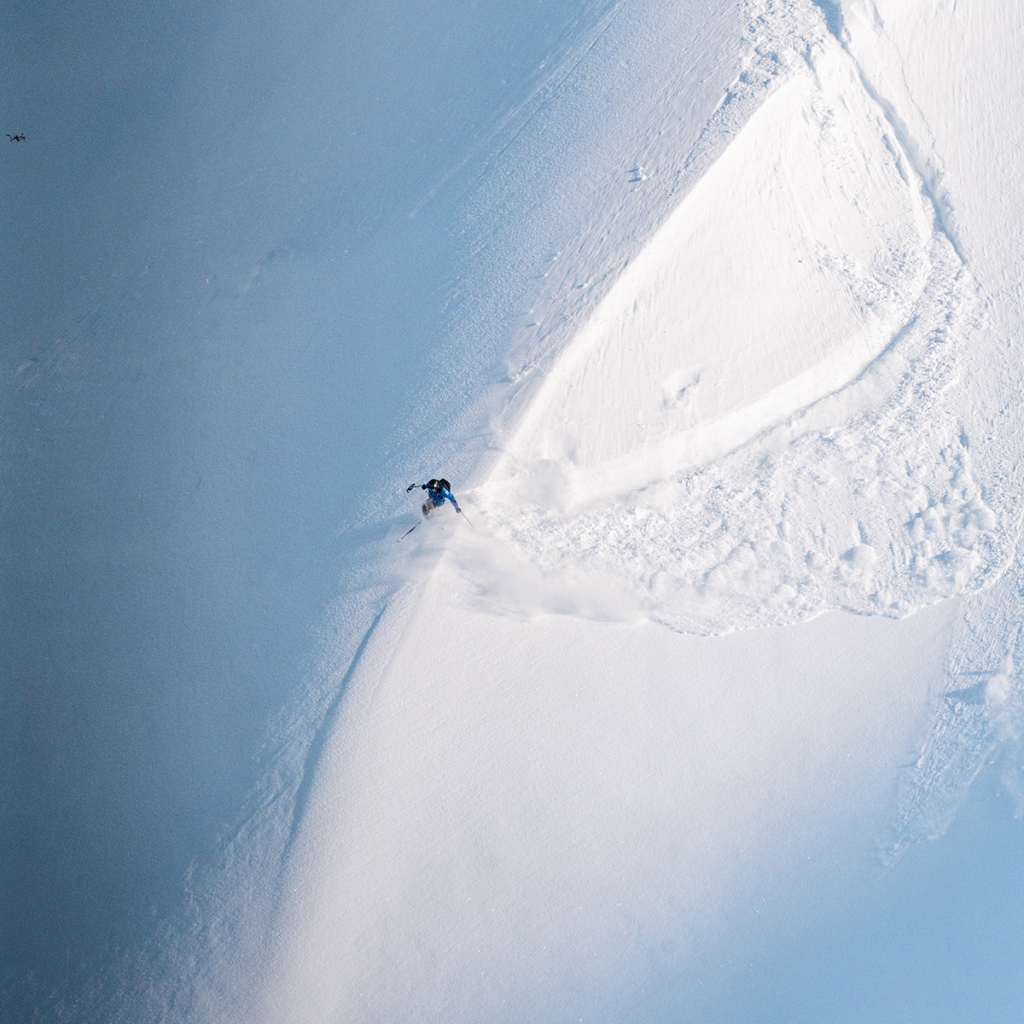
R: What do you think about the word “disabled”? I’ve never been a fan of it, and generally use the term “differently-abled.”
V: I use Disabled loud and proud. Disabled is not a bad word. Ableism is. Humans are diverse. Similar to how there are thousands of varieties of apples, humans have variety in skin tone, size, shape, bumps, lumps, and odd limbs.
I use the word Disabled because it acknowledges the social impacts on Disabled people. Societies have tried to kill us off through eugenics, institutionalize us, abandon us, torture us… the list goes on. Practices like the ones the Nazi’s took from California’s 1909 eugenics law to create the so-called “perfect race” and cultural and physical genocide. But we lived through it, and we are louder than ever when it comes to voicing our needs and asking for caring and supporting communities.
I believe that saying the name brings awareness to the ableist standards that make spaces inaccessible – from health care, to education, to caregivers, to transportation, to job opportunities, to intimate relationships. It acknowledges the issues that language like “differently-abled” erases. While differently-abled individualizes the disability, it does not acknowledge the issues our resilient community continues to face daily. Now, once you add other identities to the mix – like race, ethnicity, gender, sexuality, socio-economic status, zip code – these issues are exacerbated tenfold. This is the meaning of inter- sectionality.
R: What drives you to continually challenge yourself?
V: The next generation. My work serving as a representation will make the path much smoother for others who come after me.
R: Anything else you’d like to share?
V: Get out of your bubbles! Try volunteering or taking part in other cultures. Our country is so diverse, and we can learn so much from each other. Creating intentionally integrated communities will help us find peace.
Most of all, treat others how they want to be treated. Build those relationships and learn how to treat them. That’s what I’ve worked to embody daily. It’s my way of life.
Robin Barnes is in her fourth term on the PSIA-AASI National Team. She also serves as the director of skier services at Heavenly, California.

